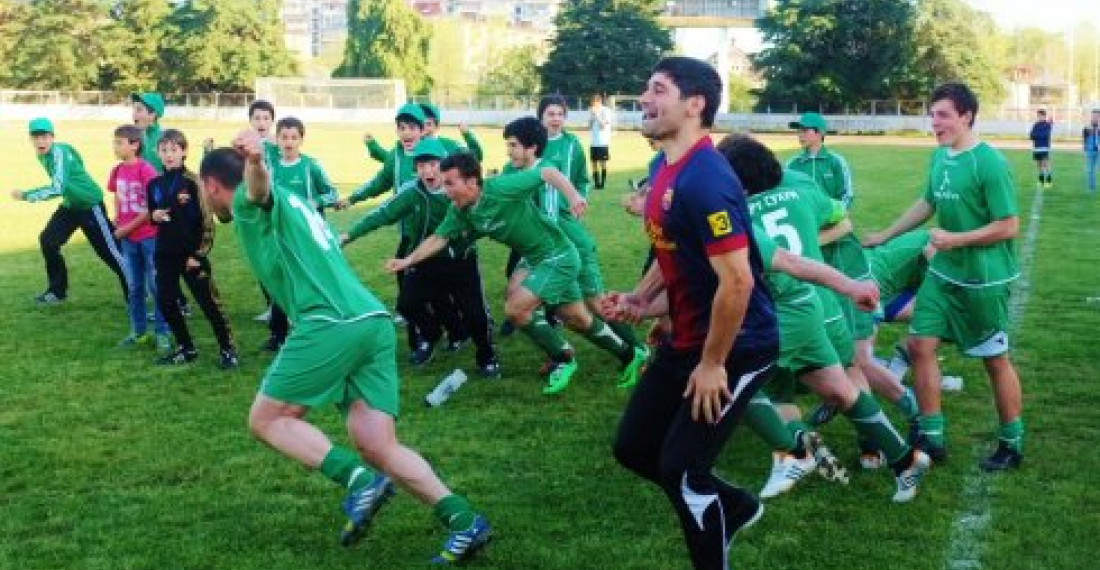Georgia has broken off diplomatic relations with Damascus, and hopes no others will follow. In another twist, a team playing under the Abkhaz flag will this week participate in an alternative football world cup in London. In some ways the football match in London may be causing a bigger headache in Tbilisi than the diplomatic demarche with Damascus.
Syria on Tuesday (29 May) announced that it was recognising the independence of Abkhazia and South Ossetia and establishing full diplomatic relations with them. The announcement appears to have taken the Georgian government by surprise, and Tbilisi promptly broke diplomatic relations with Damascus, describing the move as another unfriendly step by Russia, which is Syria's political and military patron.
Despite the fact that Syria is a war torn country, the move is very unwelcome in Tbilisi and there is some concern that this may be the start by a long declared intention by the two separatist entities to broaden their international recognition.
Abkhazia and South Ossetia were recognised as independent states by Russia shortly after the August 2008 Georgia-Russia War, in a move that many saw as Russia's attempt to punish Georgia, and to give Russia a free hand in the two territories that had been under its patronage since the early 1990s. At the time a handful of countries followed. Nicaragua and Venezuela - two latin american friends of Russia followed soon after, but somewhat more bizarrely the Pacific micro state of Nauru, also followed suit. Two other small Pacific states - Turvalu and Vanuatu initially also recognised the two separatist entitities, but they changed their mind soon after and restored relations with Georgia.
Russia failed to garner further international recognition for its protectorates in the South Caucasus, and there was an impression that it was not even trying. Damascus' unexpected move is likely an indication of a new Russian push - one that is likely to unsettle Georgian diplomacy.
In another twist to the broader issue of isolation of the separatist territories, an Abkhaz football team is this week playing in London under the Abkhaz flag in an alternative football world cup ( officially known as the CONIFA Paddy Power world cup) for unrecognised nations and others who do not normally participate in international tournaments. Abkhazia plays Tibet on Thursday at the Queen Elizabeth Stadium in Enfield. A ticket costs £11.
There is a big ongoing debate on the extent to which there should be engagement with Abkhazia and South Ossetia by the international community, even if short of recognition. The Georgian government is adamant that all contacts have to go through Tbilisi. In some ways the football match in London may be causing a bigger headache in Tbilisi than the diplomatic demarche with Damascus, even if it shouldn't
source: commonspace.eu
photo: Young Abkhaz playing football, and preparing for the alternative world cup. Their team will play in London on 31 May. (picture courtesy of conifa.oeg)







